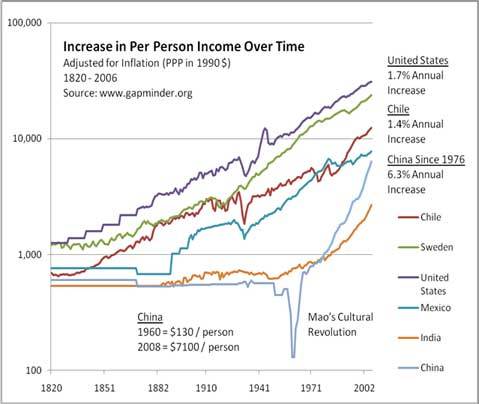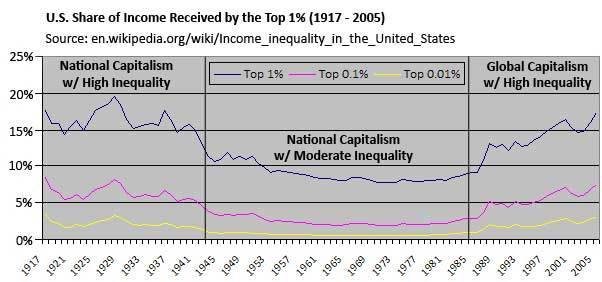In an election of Olympic importance, both candidates have been playing small ball. In the midst of a global crisis, America is yearning for leadership while trembling in fear. And while the polls tell a tale of splintered self-interests, our country is still capable of much, much more.
As Arianna Huffington pointed out, what this election needs is a new and compelling story. Our biggest problem isn't the pain of today. It's the uncertainty of tomorrow. After 9/11, two wars and a financial meltdown, our challenge isn't a lack of consumer confidence. It's a crisis of faith. We know that something's broken, but we can't agree on what it is or how to fix it. Without a vision for where we're at and where we're going, is it any wonder we can't agree on what actions to take?
We don't need someone to distract us from our challenges. We need a leader who will help us understand, accept and embrace them. We need someone who will tell us hard truths, who will help us create a shared vision, and who will remind us that we are not consumers -- we are citizens of the United States of America. As citizens, we have an essential job to do. At stake is the future of our country -- and the future of capitalism.
Banking reform, the federal debt, health care, taxes, global warming, education, the size of government -- each of these topics is really part of a bigger question, "how do we create shared prosperity in a globalized world?" We're at a critical fork in the road, where the path ahead leads either to American renewal or American decline, and the most important decisions we need to make aren't about the size of government -- they're about the nature of business.
The problem is that capitalism has become a sacred cow. In some ways, it's become our national religion. And in the face of the largest financial crisis since the Great Depression, we need to decide whether we're going to treat the current system as dogma, or if we're going to evolve it into something even better.
If we're to do so, we need to address the truths and fears of both sides of this great debate. I just had dinner with a friend who's a successful, conscious CEO, and who's also a member of the Tea Party. While I disagreed with him on many topics, he also reminded me of some great truths.
Similar to Moore's Law, for 200 years the U.S. economy has consistently grown at an exponential pace. Thanks to the combination of capitalism, technology and democracy, our income has doubled every 40 years.
In 1830, the average person made $115 a year -- about $2300 in today's money -- and their life expectancy was 39 years. Today, our average income is $41,700, and life expectancy has doubled to 79 years.
Capitalism is the golden goose that has turned this country into a place where we now drive to our protests. And while money can't buy you love, it can definitely buy you a level of freedom. This is the great truth Republicans keep reminding us of. If we are to remain the Land of Liberty, we need to honor business, limit regulation and bureaucracy, and reward people who create value in the marketplace.
That's half of the story. The other half is about fairness. Our country was founded on the dream of "liberty and justice for all." Liberty and justice. Any story of the future needs to focus both on how much wealth we're creating and on how well we're creating it. Are we creating shared prosperity, or are we just making the rich richer? Is our success helping create a better society, or is it creating more problems than it solves? Are companies truly creating value, or are they focused just on how much they can take? Are we making money in ways that actually make the world a better place?
This is where things get tricky, because while it took a financial crisis to get our attention, the challenges we're dealing with have been building up for years. From the 40's until the 80's, our capitalist system was both efficient and fair. Not only did it create ever more wealth, it did so in a way where everyone prospered.
It wasn't always this way. From 1830-1945, the first stage of American capitalism had a ruthless focus on efficiency. High growth was matched by an equally high inequality between the rich and the rest. But from 1945-1985, the second stage of capitalism ushered in the great rise of the middle class. For a time, a rising tide truly did lift all boats.
Yet the last 25 years ushered in a new, more brutal era. With the advent of information technology and a global economy, the rules changed again. Any job that can be automated or outsourced is now at risk. This increase in efficiency has brought great benefits to the few, but not to the many.
Imagine four people -- Poor Peter, Middle Michelle, Rich Robert, and Elite Elizabeth. Peter is one of the lowest earners (20th percentile), Michelle represents the middle class (50th percentile), Robert is in the top 1% (99th percentile) and Elizabeth is in the top 0.01% (99.99th percentile).
From 1970 to 2010, our average income doubled, just as it has roughly every 40 years since 1830. But these gains were highly skewed. Peter's income went up by 10% and Michelle's increased by 27% -- small gains that came paired with a large drop in job security. In contrast, Robert's income went up by 87% and Elizabeth's increased by a remarkable 361%.
We now have the highest inequality of any western country -- on par with China, and worse than Russia, India and South Korea.
As a way of justifying this, we often hear about how the rich pay more in taxes. But as The Economist recently reported, this isn't actually true.
The American tax code as a whole is almost perfectly flat. The bottom 20% of earners make 3% of the income and pay 2% of the taxes; the middle 20% make 11% and pay 10%; and the top 1% make 21% and pay 22%. Steve Forbes couldn't have drawn it up any better.
While globalization is helping lift China out of poverty at an unprecedented pace, it's caused financial stagnation in our lower and middle classes.
The miracle of capitalism is how it can turn moderate inequality into shared prosperity. Played well, a competitive game makes everyone better. Communism tried to eliminate inequality, and collapsed under a mountain of inefficiency and entitlement. Inequality is essential to growth, and a healthy society provides opportunities for advancement rather than guarantees of wealth. This is the great truth of the Republicans.
The great truth of the Democrats is that too much inequality is just as damaging as too little. While we've learned how to keep growing our GDP in the face of globalization, we haven't yet figured out how to do so in a way that creates continued opportunities for everyone.
This truth is often decried as "class warfare" or "socialism" - but it's exactly the opposite. As Joseph Stiglitz explains, reducing inequality is critical to boosting consumer demand, healing our system and restoring growth. It's something we have to tackle if we're to remain competitive and bring our debt under control. And it's something we have to tackle if we want to continue to have a fair and just society.
The problem is that in the face of this double crisis -- of debt and inequality -- the Republican Party has been doubling down on their old prescriptions. Instead of trying to fix the systemic failures in our banking system, their claim is that the financial crisis was caused by our government, that it won't happen again, and that the solution is to embrace a purer, less constrained form of capitalism -- one with even lower taxes on the rich, even less financial regulation and even more costs to the middle class. Their claim is that these policies will make our system more efficient, and the rewards of this will automatically "trickle down" to everyone else.
It's not that these ideas are wrong. It's that they've expired. What worked for Reagan won't work today. The capitalism of yesterday helped get us into this mess, and trying to go backwards won't get us out. To thrive in the 21st century, we need to lead the world in innovation -- not just with our companies, but with our system itself. We need to create the capitalism of tomorrow. We need to create a system that embraces efficiency and fairness. One that honors globalization's strengths and challenges. One that allows us to continue growing without destroying the planet. One that avoids the dangers of entitlement, while also creating opportunities for a broad, sustainable prosperity, rather than just placing ever more wealth in the hands of the few.
Creating this system is the defining opportunity -- and challenge -- of our generation. It's not a problem the government can solve on its own, and the Republicans are right to point out the dangers of overregulation, over-spending, inefficiency and a culture of entitlement. But neither can it be solved just by business. It's something that will require everyone's involvement.
How do we do so? I don't think anyone knows yet. But we don't need to. This is a moon shot. It's something to rally the country around. It's something for us to create together. It's the opportunity for innovation that would put us back on the road to renewal.
The one thing I do know is that this new capitalism requires a new approach. Instead of valuing people simply for how much money they've made, we also need to focus on how well they've made it. Did they contribute value? Did they give more than they took? Did they make the world a better place?
I have a vision of a leader standing up, reminding us of how we've all contributed to this situation, and telling a new story of what's next. As a wild example, what if instead of just a Democratic and a Republican convention, we also had a capitalism convention? One that invited the best and the brightest from business, government and academia -- right and left -- where the ticket for admission was the requirement that each person check their ideology and ego at the door, and focus on exploring solutions that truly create opportunities for everyone?
Or what if the leaders of our five largest banks got on television, sincerely apologized for their companies' role in the crisis, and announced that for the next five years, they're going to invest five percent of their companies' bonus pools on understanding and fixing the structural, cultural and leadership issues that helped create these problems?
I don't know about you, but that's a story I could start to get excited about.
What do you think? What are your thoughts on this topic? Please add your voice to the comments below.

